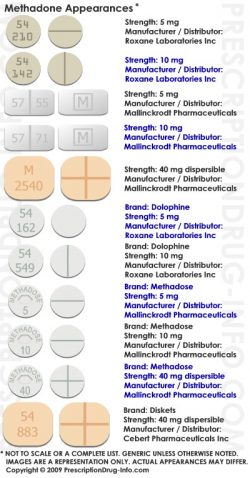Safety of Methadone Maintenance Treatment
Methadone maintenance treatment offers a proven treatment approach for opiate drug addictions. After decades of use, studies on methadone-based treatments exceed those of any other medication-based approach. While methadone does offer many benefits for recovering addicts, many safety concerns regarding methadone maintenance treatment exist.
As methadone is an opiate-based drug, many of its safety concerns center around the known side effects opiates-type drugs cause. Safety risks from side effects can affect the outcome of initial dosing periods, pregnancy outcomes as well as possible drug interactions with other medications.
Initial Dosing Concerns
Ideally, methadone maintenance treatment should eliminate a person’s drug cravings and reduce withdrawal effects without creating the common sedative-like, euphoric effects associated with opiate use. As each person’s addiction level and body chemistry differs, treating physicians must consider a wide range of factors when determining dosage adjustments.

Finding the right dosage of methadone can be difficult, and as an opiate methadone does have addictive potential.
When starting off methadone maintenance treatment, finding the right dosage level for any one person can be difficult to gauge. Methadone naturally stays in the system longer than other opiate drugs and metabolizes slowly as well. These combined factors make it easy to administer more than a person’s body can handle during the initial dosing-adjustment period. As a result, methadone side effects can occur on a frequent basis.
According to the U.S. National Library of Medicine, high rates of intoxication and/or toxicity are common during the initial dosing stages of methadone maintenance treatment. Respiratory depression, a deadly side-effect from methadone toxicity, occurs on a frequent basis.
Part of the reason for this has to do with some patients relaying inaccurate information to doctors regarding how methadone maintenance treatments are working. In other cases, patients experiencing persistent drug cravings may over-medicate or resort to street drugs in an attempt to gain relief.
Drug Interactions
Like any other opiate drug, methadone works by depressing or slowing the body’s central nervous system. In effect, methadone maintenance treatment works by mimicking the effects of other opiate drugs, such as heroin and quenching drug cravings and withdrawal effects. When combined with other central nervous system depressant-type drugs, the potential for accidental overdoses increases considerably.
People who drink alcohol or use benzodiazepines compromise their central nervous system as these substances affect the central nervous system in the same way methadone maintenance treatments do. Interactions with other types of drugs can also affect how quickly (or slowly) methadone maintenance treatments are metabolized in the body. Drugs that prolong methadone metabolism pose the greatest risk for accidental overdose incidents.
Pregnancy
Ongoing opiate abuse can pose serious risks for pregnant women as well as for the developing fetus. The withdrawal effects that often accompany opiate use can cause a woman’s uterus to contract, thereby bringing on a miscarriage or causing a premature birth. Since methadone maintenance treatments work to reduce withdrawal effects, a woman has a much better chance of carrying to term.
As methadone also reduces drug cravings, recovering IV users greatly reduce their risk of contracting infections during the pregnancy term.
While definite safety issues regarding methadone maintenance treatment exist, someone who’s pregnant must weigh these issues against the effects of addiction on her baby and decide from there.